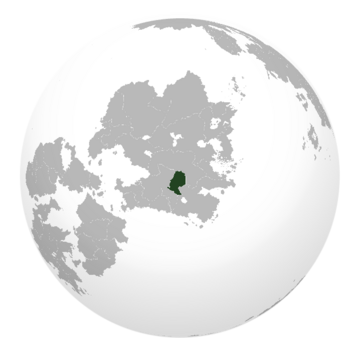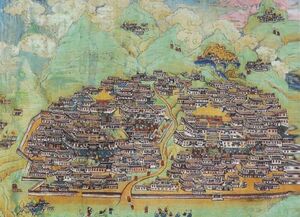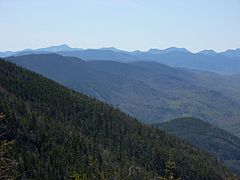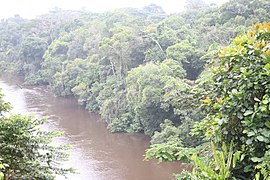Canpei: Difference between revisions
mNo edit summary |
mNo edit summary |
||
| Line 18: | Line 18: | ||
|other_symbol_type = | |other_symbol_type = | ||
|other_symbol = | |other_symbol = | ||
|image_map = | |image_map = CanpeiGlobe2.png| | ||
|loctext = | |loctext = | ||
|alt_map = <!--alt text for map--> | |alt_map = <!--alt text for map--> | ||
| Line 26: | Line 26: | ||
|alt_map2 = <!--alt text for second map--> | |alt_map2 = <!--alt text for second map--> | ||
|map_caption2 = | |map_caption2 = | ||
|capital = | |capital = Brink | ||
|coordinates = <!-- Coordinates for capital, using {{tl|coord}} --> | |coordinates = <!-- Coordinates for capital, using {{tl|coord}} --> | ||
|largest_city = capital | |largest_city = capital | ||
|largest_settlement_type = largest city | |largest_settlement_type = largest city | ||
|largest_settlement = | |largest_settlement = | ||
|official_languages = | |official_languages = Canpei | ||
|national_languages = Corummese | |national_languages = Corummese | ||
|regional_languages = <!--Languages recognised or associated with particular regions within the country/territory--> | |regional_languages = <!--Languages recognised or associated with particular regions within the country/territory--> | ||
Revision as of 01:53, 5 January 2023
Republic of Canpei 新都共和国 | |
|---|---|
|
Flag | |
 | |
| Capital and largest city | Brink |
| Official languages | Canpei |
| Recognised national languages | Corummese |
| Ethnic groups |
|
| Demonym(s) | Shingtoese |
| Government | Presidential system |
• President | Dong Bao |
| Legislature | - |
| Establishment | |
• ?? | ???? |
• ?? | ???? |
• ?? | ???? |
• ?? | ???? |
| Population | |
• 2025 estimate | 32,152,365 |
| Time zone | UTC?? |
| Driving side | left |
Canpei, oficially the Republic of Canpei (Corummese:新都共和国) is a country in southern Alshar. It borders Rusana and Corumm to the south, Tanhai to the east and Udon Khai to the west. The name Canpei can be roughly translated as 'the broad north' as the region was known to the Corummese empires to the south, a sort of last frontier before transitioning to the barbarous, nomadic northern steppes. The capital of Canpei is the city of Nicheng, which is located roughly in the geographic center of the country, next to the Hongse river. Canpei has a population of around thirty two million people. Canpei has a mixed economy with elements of state dirigism coexisting with free market capitalism, economic inequality is one of the highest in the world. Most of Canpei's exports use Corummese ports and the nation is very reliant on remittances from Corumm. Canpei is a presidential republic consisting of six provinces. Canpei is classified by the International Liberty Index Foundation as a flawed democracy with worrying downward trends on issues such as corruption, speech and media freedoms and free and fair elections.
Canpei's history is deeply enmeshed with that of its southern Corummese neighbor as the latter began expanding into the area in the early 8th century. Expansion
Etymology
Why is your country called what it is? What is the source of that word or phrase?
History
What is a general overview of your country's path through history?
Settlement

The very first attested instance of organized habitation of the Canpei plains is from an Shang dynasty imperial proclamation in 720 CE; granting official town status to the city of Brink which sits at the southern mouth of the Hongse river. Imperial surveyors traveled northbound along the eastern bank of the river encountering small nomadic settlements, its people probably related to the Degei confederation to the east. Imperial authorities erected five wooden forts alongside the river to serve as frontier posts, this territory would be known thereafter as the Left-Bank Frontier province with Brink serving as its first seat. Brink and its hinterlands were dominated by the Houxi clan, linked by marriage to the Imperial family by marriage to a second cousing of the Emperor Cao Mei. The Houxi were thus the beneficiaries of imperial patronage and their province received generous subventions that it otherwise would not be granted given its low population. From 803 CE onwards the Houxi held a monopoly on the office of Imperial Viceroy. It was Viceroy Chang Houxi who first ordered an expedition be mounted across to the other side of the Hongse into what is known as the Mongshe forest, where Huoxi began setting up numerous logging camps. The explotation of forested areas became an important source of revenue for the Houxi family who built a palisade and town named Hochi across the river to serve as the logistic center of the operation. Hochi came under attack several times by previously undiscovered forest peoples, with the Viceroy's escort being attacked on their way from Brink.
United Cities era
Peak, if applicable" period
Imperial and Republican rule
Modern era
Revolution of Dignity and Corummese suppression
Geography
-
First lovely location
-
Second lovely location
-
Third lovely location
-
Fourth lovely location
-
Fifth lovely location
-
Sixth lovely location
What is the general explanation of how your country exists within the world?
Climate and environment
Is your country hot or cold?
Government and Politics
How is your country ruled or governed?
Executive
Who is responsible for making high level choices in your country? Does it have a President or King?
Legislative
Who decides the laws for your country? Is there political parties and a legislature?
Federal subdivisions
How is your country divided? Are there states or provinces, or is the country directly governed from the capital as a unitary state?
Politics
What political factions exist? Who has ruled predominantly?
Law
What kind of laws and legal system does your country employ?
Demographics
What kind of people live in your country?
Ethnicity
What ethnic groups make up your country?
Language
What language or languages do your country's people use? Are there any previously used languages no longer common? Are these languages native to your country or shared with another?
Religion
Religious affiliations in the XXX (20XX)
What do your country's people believe in religiously, if anything? How many groups are there?
Education
How many people in your country are educated?
Culture and Society
What do your people do, and what are they like?
Education
What is your country's education system like? How do the schools work? What do people think about education?
Attitudes and worldview
How do your country's people view life?
Kinship and family
How are families or kinship groups structured in your country?
Cuisine
What do your people eat?
Religion
What do your people believe? Rather than demographics, as above, think about how important religion is to your people and their view about their own and other religions. What is the relationship between the prevailing view and minority religious groups? Is it an official religion, and do any laws exist about free worship?
Arts and Literature
What type of art do your people make? Do they have a tradition of painted art, well-crafted television shows, or great music?
Sports
Does your country have any major sports leagues? What types of sports are played, both professionally and for fun by your country's people?"
Symbols
Are there any prominent symbols which are well known to represent your country?
Economy and Infrastructure
How does your country's economy work?
Industries and Sectors
What are the largest parts of your economy in terms of what they do?
Currency
What exchange systems are used within your country's economy?
Healthcare
How do people in your country procure medical care? How is it paid for?
Labor
How is labor organized within your country? Are there any social institutions or unions which deal with labor concerns?
Transportation
How do people in your country get around? Is there a major highway system as well as sea- and airports?
Energy
What type of energy keeps your nation going? Are you renewable or use fossil fuels, and if you are renewable, how recently did your country transition?
Technology
How advanced is your country? Is it an innovator, or does it largely import new developments?
Military
How large is your country's military? Is it large but poorly equipped or small and elite? Does your country have a martial tradition? Template:Alshar topics






